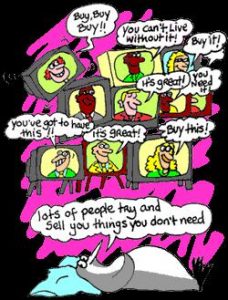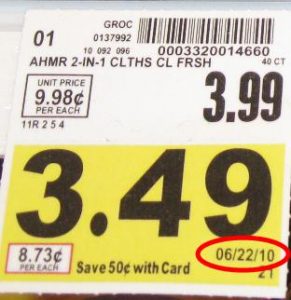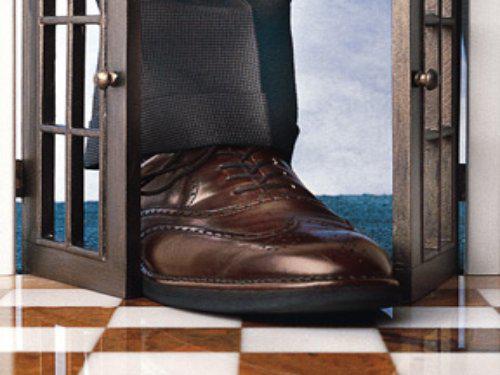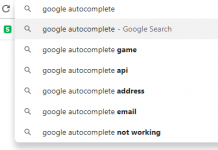At one of my old sales jobs, my boss said something to the effect of: “A sale is when there has been a transfer of emotion.” To him, it didn’t matter if there was a tangible product, a service performed, or an idea conveyed. Someone was “sold” on something when their emotional state convinced them to rationally accept what they were being told. In most cases this meant to give up money to receive something in return. This philosophical idea of sales is not universally accepted but it does make a lot of sense when you think about how each and every day people are trying to sell you on something. Even if you avoid used car lots like the plague, hang up on telemarketers, and ignore door to door sales people, you are still confronted by people upselling you at lunch, convincing you to give a bigger tip, asking you to sign petitions, or selling you countless things in commercials on TV.

There is no escaping it because it’s everywhere.

Some people are very bothered by this reality. When I was in high school, I began to notice that my mother hated all door-to-door sales people except for the ones that she would buy from. This is because she is very susceptible to the techniques used by sales people. As a result she felt great about making purchases that she had been emotionally sold on, and she felt great about the people selling to her. When she was not emotionally sold, she then hated the people, the company they worked for, and the product for the rest of her life. I believe that a lot of people out there, like my mother, get very stressed out because of people selling to them.
I feel the best way to navigate the minefield of the inevitable day-to-day sales situation is to embrace it and know your enemy. I have worked over a dozen jobs in my life and at least half of them involved sales in some way. There are a variety of tactics that people use to sell thing to you. If you know what these tactics are then you will be that much better prepared to deal with people selling you things each day.

Here is one that we see EVERY DAY. The Before and After. Nearly every grocery store will use price tags showing that most of their inventory is on sale.

They show the before price and the lower after price in giant easy-to-read numbers. This is not just there as a service to show you what you are saving. It is also used to make you FOCUS on how much you are saving and not think about how much the same item would cost at another store. Always have an idea about the general prices of what you are planning to buy. The “sale” price might not be much of a bargain. This same concept is utilized in other ways as well. Diet commercials almost exclusively use before and after pictures to sell their product. Same goes for infomercials about cleaning products. I’m not saying that there is no practical value to before and after images and prices, but beware of what you are being sold and what other options exist.
Another tactic sales people will use is to behave overly friendly to you. This is a big one for anyone selling anything to you in person. Door to door sales people and car sales people will often be very friendly and then toss in some light profanity. Oddly enough, this tends to make people feel like they can trust you.
Servers at restaurants will often lean down or crouch to get at your eye level and talk in overly nice tones because it gets them better tips. Both servers and sales people will carefully pepper in the cursing if they sense that it will put you at ease. (This person is just like me, not some stuffy sales person) It is important to remember that the fact that people are using these tactics are not in-and-of-themselves, a bad thing. Enjoy their pleasant behavior and good service, but beware that, so often, it is nothing more than a tactic to sell you something. If you want to understand what your restaurant servers are thinking, the movie “Waiting” bears an uncanny resemblance to my experience working for an Applebees.
Sales people will try to figure out what kind of person you are and what representational system you respond to. This gets complicated, but to put it simply: Many people believe that as humans we all process and store information in a number of ways. Some people are more visual, for example. The theory is that IF you can determine what someone’s representational system is, then you can convey information in a more direct and effective way, and then sell them stuff. A simple example of this in practice is a car sales person selling a car to a man by saying: “I think this is the best bang for your buck when it comes to mid-sized sedans.” And then selling the same car to a woman later that day by saying: “I feel that this is the best value for you money when it comes to mid-sized sedans.” Once again, this tactic does not really hurt you as the consumer, but it is probably a good thing to keep in mind.
I’m sure that almost everyone has seen a salesman on TV or in person who is talking very fast. There is a very good reason for this. When you speak quickly with confidence you appear to know what you are talking about. This goes a long way towards convincing someone to listen to you. Studies have shown that most people do not listen to everything that is said to them. Our brains put the information together like a puzzle and we fill in the blanks. So it also stands to reason that if people will only be hearing part of what you are saying you should try to bombard them with information about your product so that they get the relevant information. Sort of like the verbal equivalent of a shotgun or “accuracy by volume” kind of thing.
Another visual tactic that stores and sales people will use is to present you with prices and numbers that are a little too specific. I am not talking about the $400 television that is priced as $399.99. It’s true that those price tags make you think in terms of it as 300-something rather than 400-something. But I’m talking about the vacuum cleaner salesman who shows you a booklet or flyer with a $2000 price tag and then gets out a notepad and deducts the various discounts and the price of your trade in to arrive at $1457.89.

The precise nature of this price is a tactic to discourage you from haggling further. They want you to think: “This is the deal that I am going to get.” If they were willing to “wheel and deal” with the price at all, then they are probably willing to take an even $1400.
Nearly every kind of sales person will in some way try to get their foot in the door. For sales people a “foot in the door” figuratively means that they have you talking, responding, and saying yes to their questions. (With door to door sales, the “foot in the door” is also literal)

Telemarketers are always in a rush to get you to talk about yourself and answer “yes” to something because then you are less likely to hang up. We feel more comfortable saying yes to someone after we have already said yes to them. Servers use this to upsell. Server: “Is everything alright?” -Yes, “Did you enjoy that steak?” –Yes, “Can I get you something for dessert?” –Yes. Once they are “in the door” and selling you on things these same tactics can be slightly altered to close a deal. When I was selling vacuum cleaners door to door, I would try to sell to husbands and wives together so that I could verbally maneuver them around with these and similar tactics. For example, after I was done pitching the vacuum and I knew that they wanted it but didn’t want to pay the ridiculous price, I would sit down in front of the couple and ask the wife: “Do you want it?” –Yes. Then I would turn to the husband and ask: “Can she have it?” This puts them in a hilarious position because most people don’t think clearly enough to realize or verbalize that my question, which implies an archaic imbalance of power in their marriage, is not even addressing the real problem of the products price. The question instead plays into the “yes after yes” tactic while also focuses their attention on their “want” of the product itself.
One of the most important tactics that are used to sell you things is to give you free stuff. Anytime you walk through Costco and an employee offers you a meatball on a toothpick as a free sample, you are accepting something. This sets your brain on the right path to follow through and accept other things. It also plays off the previously mentioned “yes after yes” concept. When you walk into a car dealership or a furniture warehouse they offer you coffee or a soda.

Coffee and soda are the most powerful freebies. Coffee and Soda also get you caffeinated which put you into a temporary state of alertness. Remember that most people do not hear or listen to every word that people tell them? In this state you will hear more of what they are saying to you. I want to be clear; I am not saying that you should throw their coffee on the floor like they are trying to poison you. Accept as much free stuff as you want, I exploit it for all it’s worth. I don’t go to Panda Express without getting at least 2 samples of shrimp. Just be aware of what the sales people are doing.
Many stores and sales people will create a false sense of limited time or limited choices, or both. This tactic works by creating a sense of urgency to buy. “Sale Price” “Limited Time Only” “Blue Light Special” Any or all of these terms might be completely legitimate but many stores will label things this way to exploit the customer. Limiting choices work to manipulate the consumer as well. It should be noted that there could be very legitimate reasons to limit time and choices. Some restaurants have done studies that showed lower customer satisfaction when they had too many choices.
These are just some of the tactics that sales people use to sell to you. They are important to know but dealing with sales situations are largely about understanding sales people and knowing what you want. Many years ago I remember eating dinner with my brothers and my mother when a door to door salesman came by to sell us a cleaning product for pots and pans. I sat and ate my food for about 40 minutes listening to the salesman as he got in the door, demonstrated the product, and pitched it to my mother. She reluctantly said no and eventually the salesman left. As soon as my mother shut the door her entire demeanor changed. She was totally stressed out and frustrated. She even blamed my brothers and I for not stepping in and insisting that we were not interested so that my mother could sit down and eat. I remember explaining that as far as I could tell, my mother wanted to hear what the salesman had to offer, so we didn’t feel that any assistance was necessary. That company, salesman, and product all got filed away in my mothers’ list of terrible things but not because the salesman was rude or pushy or using sleazy tactics. This unfortunate situation was caused because my mother was focused on being polite rather than knowing what she wanted. (To sit down and eat) If my mother had kept this in mind and understood what tactics the salesman was using to “magically” manipulate her into wasting 40+ minutes of her evening, then she might have enjoyed her meal and told the salesman to come back when she had more time to learn about a product that she otherwise would have loved.








